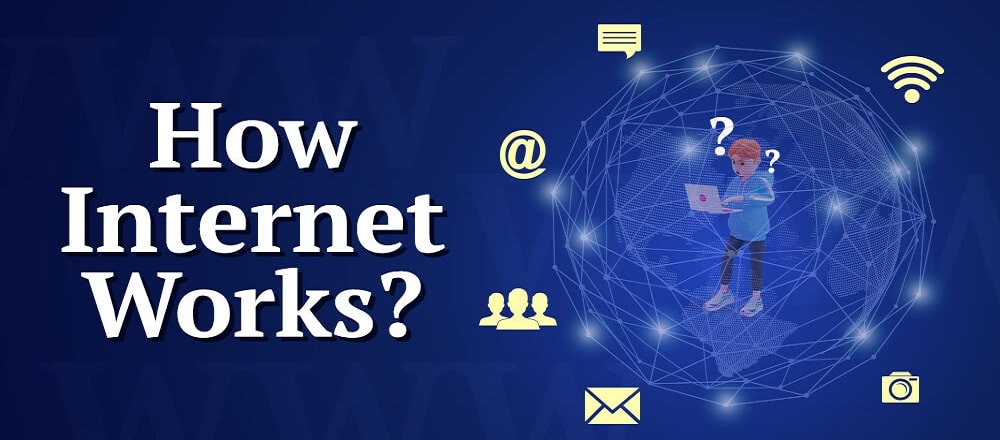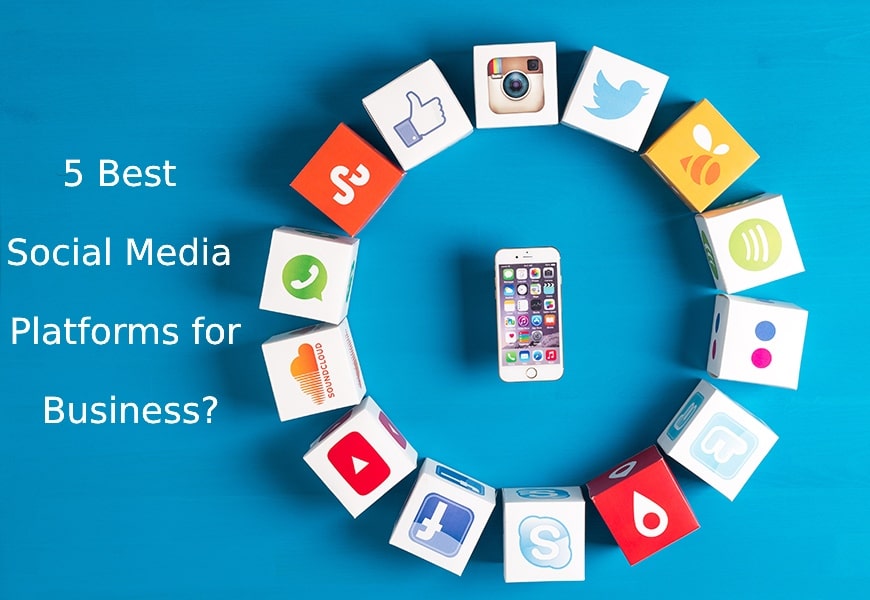As a digital native, it’s easy to take the Internet for granted. But have you ever wondered how the internet works? The Internet is a complex network of computers and servers connected to each other to share information and resources. At its core, the Internet is based on a simple yet powerful concept: the transfer of data between computers.
In this article, we’ll take a closer look at the technology behind the Internet and how it enables us to connect, communicate, and access information from anywhere in the world. Whether you’re a technical expert or just curious, this guide provides a comprehensive introduction to the Internet working.
A Brief History of the Internet
The Internet has come a long way since its humble beginnings in the 1960s. Initially developed as a way for the U.S. Department of Defense to share information, the Internet has evolved into a global network connecting millions of people and devices.
In the early days of the Internet, computer networks were isolated and could not communicate with each other. In the late 1960s, the Department of Defense developed a network called ARPANET, which connected research institutions and allowed them to share information and resources. This network became the precursor to the modern Internet.
The first successful communication between two computers on the ARPANET occurred in October of 1969. This event marked the birth of the Internet as a practical means of communication. Over the next decade, the ARPANET grew and new technologies were developed to make communication faster and more efficient.
In the 1980s, the Internet became more accessible to the general public, as universities and government institutions began to allow outside researchers and students to access their networks. This allowed the Internet to expand and become a more diverse network of users.
The 1990s marked a turning point in the history of the Internet. The World Wide Web was introduced, providing a graphical interface for accessing the information on the Internet. The first web browser, Mosaic, was developed in 1993, and it paved the way for the widespread adoption of the Internet by the general public.
In the early 2000s, the Internet underwent another major transformation with the introduction of broadband and wireless technologies. These advancements made it possible for people to access the Internet from anywhere, at any time, using a variety of devices.
Today, the Internet is a global network connecting billions of people and devices, and it continues to evolve and change at a rapid pace. From its origins as a research network for the Department of Defense, the Internet has become an essential part of our daily lives, transforming the way we communicate, access information, and interact with the world.
How Does The Internet Work?
The Internet is a global network of interconnected computers and servers that work together to share information and resources. It’s what allows you to send an email, watch a video, or browse a website from anywhere in the world. But how exactly does it work?
At its core, the Internet is based on the transfer of data between computers. This data is sent in packets, which are small units of information that are sent from one computer to another over the network.
The Internet uses a variety of technologies and protocols to ensure that these packets are delivered quickly and efficiently. One of the most important of these is the Transmission Control Protocol/Internet Protocol (TCP/IP). Which is the standard for transmitting data on the Internet. TCP/IP is responsible for breaking down data into packets, sending the packets over the network, and reassembling them at the other end.
To ensure that data can be sent and received by any device connected to the Internet, the Internet relies on a standardized set of communication protocols. These protocols define the rules for how data is transmitted and received, and they are followed by all devices on the network.
At the physical level, the Internet consists of a global network of computers connected by a variety of communication technologies, including wired and wireless connections. The most common way that people connect to the Internet is through their Internet Service Provider (ISP). Which provides a connection to the Internet in exchange for a monthly fee. Internet service provider also includes APN settings for their users to get connected with their servers. There are many example of APN setups such as Qlink APN, Verizon APN, Dito APN, and so more.
When you request a website, your computer sends a request to a server, which is a powerful computer that stores and manages information on the Internet. The server then sends the information back to your computer, which displays the website in your web browser.
In conclusion, the Internet is a vast and complex network of computers. And servers that work together to allow us to share information and access resources from anywhere in the world. Whether you’re sending an email, watching a video, or browsing the web. The Internet makes it possible by relying on a standardized set of communication protocols and technologies.
What Is The Future Of The Internet?
The Internet has already had a profound impact on our lives. And it’s only going to become more important in the future. With advancements in technology and the increasing interconnectedness of the world. The future of the Internet promises to be exciting and full of possibilities.
One of the key trends shaping the future of the Internet is the increasing use of mobile devices. More and more people are accessing the Internet from their smartphones and tablets, and this trend is only set to continue. This will lead to the development of new and innovative mobile applications. Making the Internet even more accessible and convenient for users.
Another trend that will shape the future of the Internet is the rise of the Internet of Things (IoT). This concept refers to the interconnectivity of physical devices, allowing them to communicate and share data with each other over the Internet. This will lead to the creation of smart homes, cities, and even entire countries. Where devices can interact with each other to improve efficiency and make our lives easier.
Artificial intelligence and machine learning will also play a big role in shaping the future of the Internet. These technologies will make it possible for computers to analyze large amounts of data. And make predictions and decisions based on that data. This will lead to new applications and services that can help us in our daily lives, from personalized recommendations to improved healthcare.
Another exciting trend shaping the future of the Internet is the growth of virtual and augmented reality. These technologies will allow us to experience and interact with digital environments in new and innovative ways. This will lead to the creation of new forms of entertainment and communication. As well as new ways of learning and working.
What Happens When We search something On Internet?
When you search for something on the Internet. A complex process is initiated to deliver the most relevant information to you. Here’s a step-by-step explanation of what happens when you search:
- You enter a query into a search engine, such as Google or Bing, using keywords related to what you’re looking for.
- The search engine sends your query to its index, which is a massive database of web pages and their contents.
- The search engine uses algorithms to analyze the information in its index and rank the web pages based on relevance and quality.
- The search engine then returns a list of results, usually in the form of a search engine results page (SERP), displaying the most relevant web pages based on your query.
- You can then click on one of the results to view the corresponding web page.
It’s important to note that the process of ranking web pages is complex and constantly evolving. Search engines use sophisticated algorithms to determine. Which pages are most relevant and valuable to users, taking into account factors. Such as keywords, content quality, and the authority of the website.
Who Controls The Internet?
The Internet is a decentralized network, which means that it is not controlled by a single entity or organization. The Internet is governed by a global community of organizations, individuals, and technical standards bodies that work together to ensure its stability, security, and growth.
What Is The Fastest Type Of Internet?
The fastest type of Internet currently available is fiber-optic Internet, which offers speeds up to 1 Gbps (gigabit per second). This type of Internet uses fiber-optic cables to transmit data. And is capable of providing much faster speeds than traditional cable or DSL Internet.





